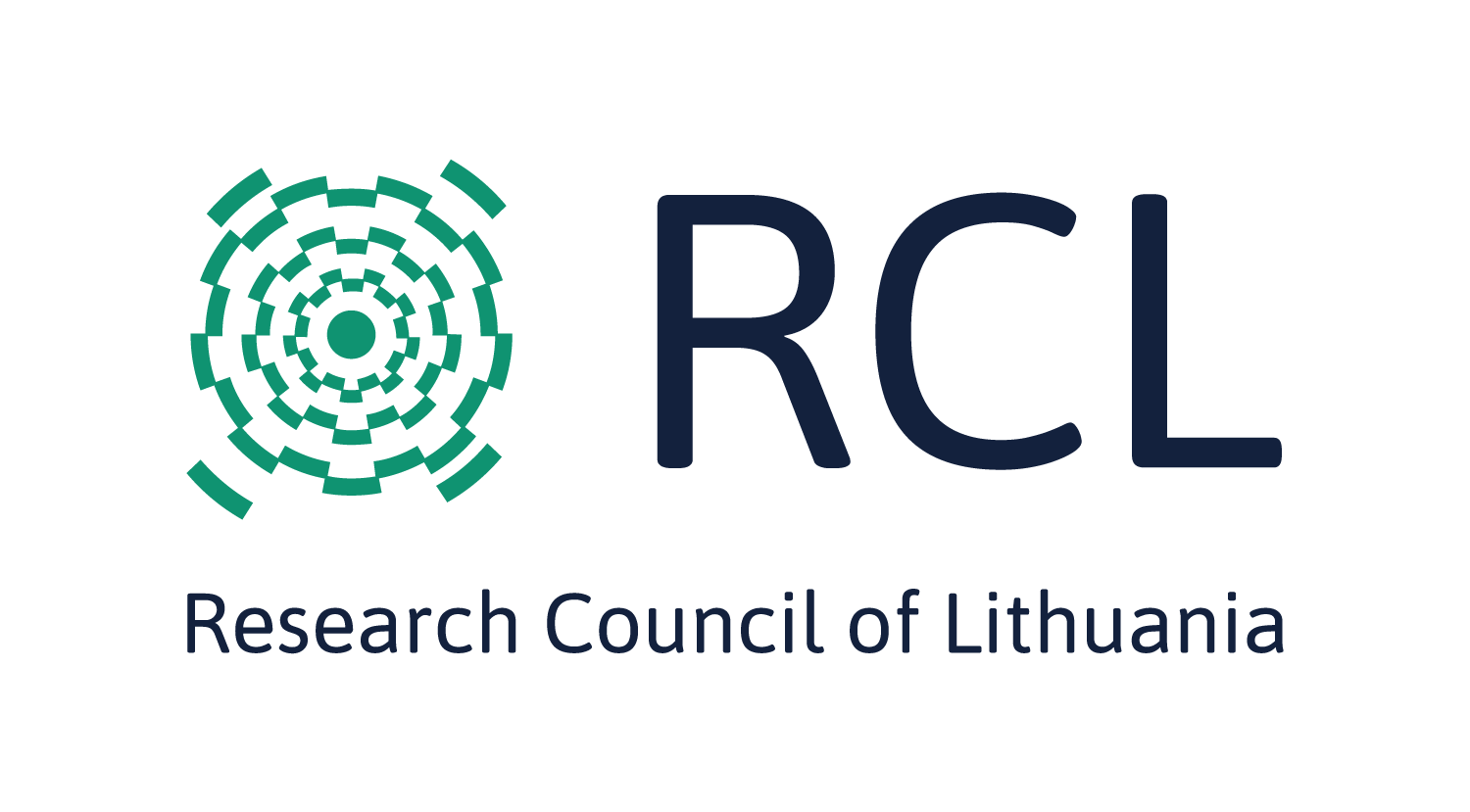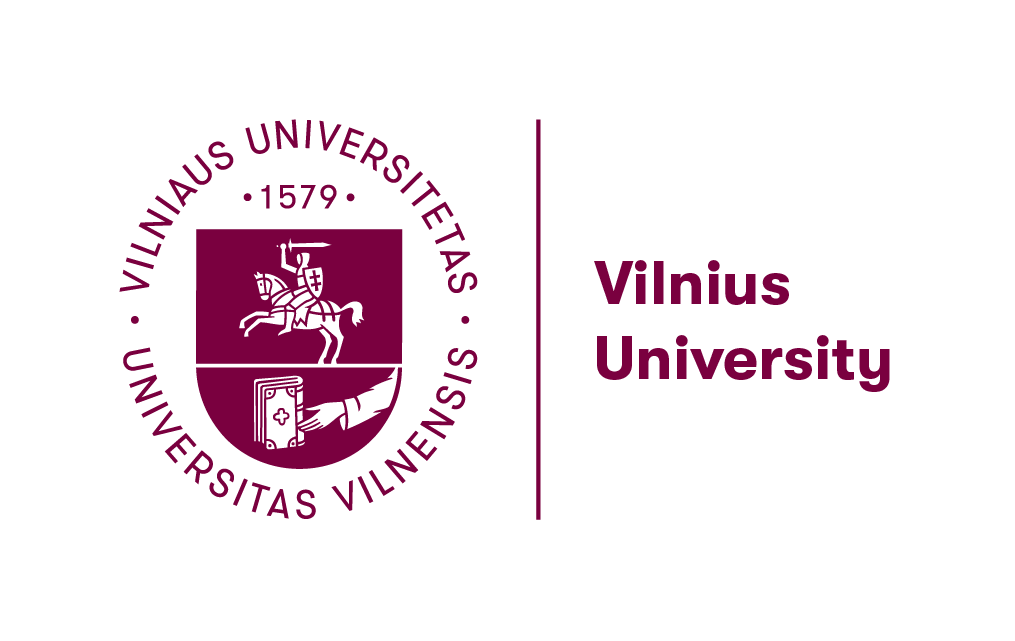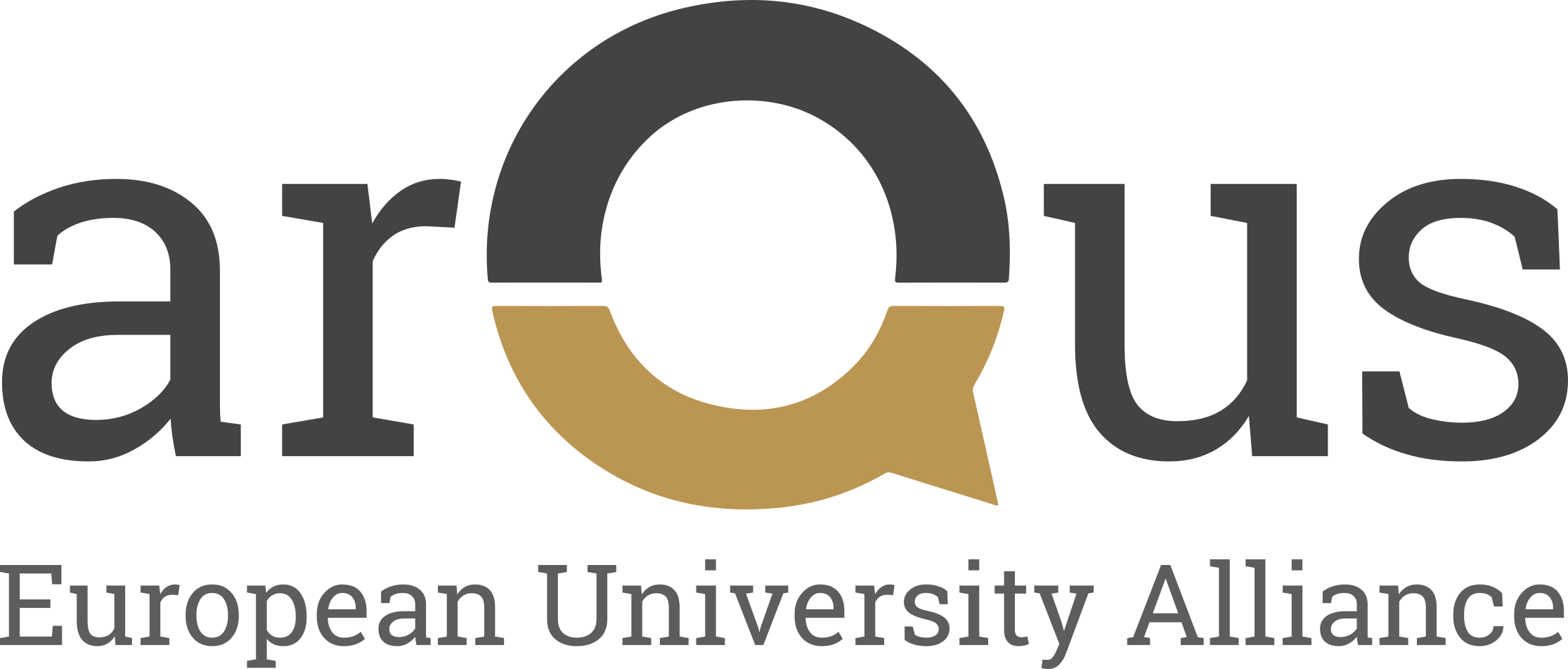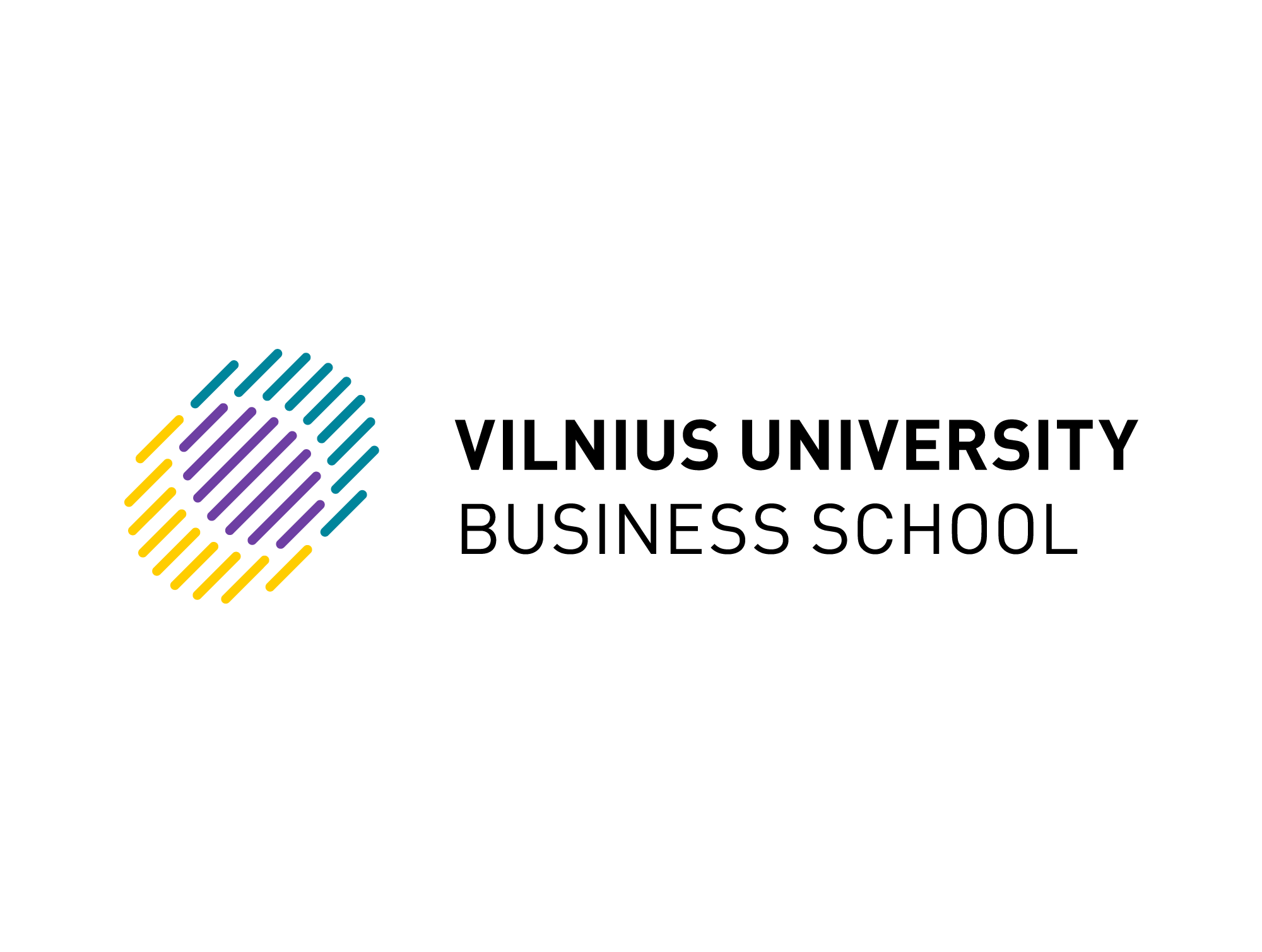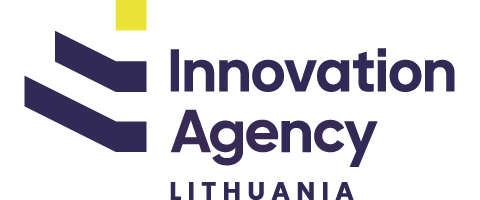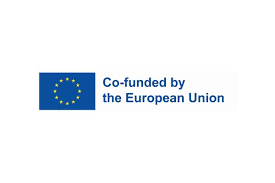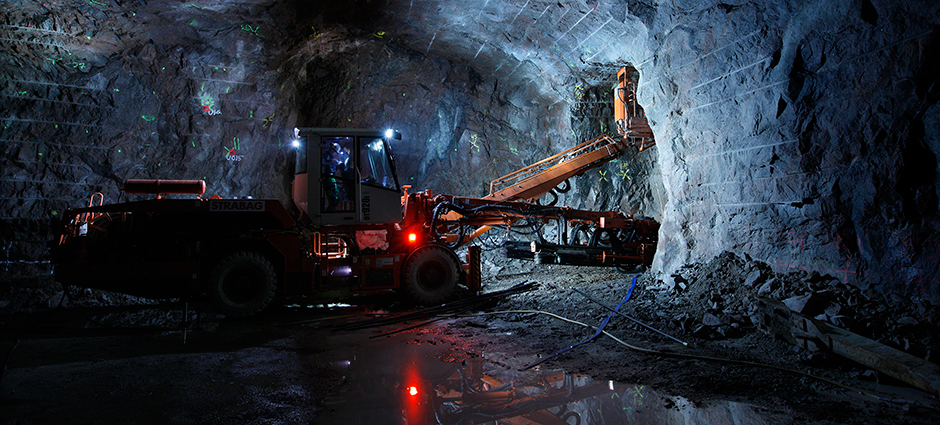
Picture from BALTIC SEA UNDERGROUND INNOVATION NETWORK (BSUIN)
Ongoing Projects
Assessment of the Economic Damage Caused by Hostile Country Disinformation to Lithuania
About the project: The research project aims to assess the economic damage caused by Russian disinformation to Lithuania. The research will identify the key leitmotifs of disinformation that have the strongest impact on Lithuanian citizens. Using media monitoring data and applying multi-criteria decision-making methods, an index of the intensity of Russian disinformation will be formed.
The insights obtained will provide a practical basis for strengthening the state's resilience to information threats and for developing more effective public policy, communication, and security measures.
Project lead: Prof. Dr. Mangirdas Morkūnas
Project period: February 2026 – January 2028
Project partners: Kaunas University of Technology
The project is funded by the Research Council of Lithuania
MODUS: Intelligent Automation as a Structuring Force in Deeptech Innovation: Institutional Pathways, Transfer Logics, and Actors Coordination
About the project: The project investigates how Intelligent Automation (IA) is reshaping science-based innovation systems through new forms of institutional coordination, knowledge transfer, and actor interaction. During the project, scientific outputs are produced, and active participation in scientific conferences is undertaken.
Project lead: Prof. Dr. Saulė Mačiukaitė-Žvinienė
Project period: November 2025 – October 2028
Project partners: Kaunas University of Technology
The project is funded by the Research Council of Lithuania.
SKILLBRIDGE: Shaping the Future of Deep Tech Work and Skills through Alliances for Education and Enterprises
About the project: The SKILLBRIDGE project addresses the challenges of the digital and green transitions, equips learners with future-proof skills, and promotes sustainable cooperation between education and industry. Building on CEDEFOP's 2023 Skills Forecasts and ETF reports, the project addresses skills mismatches by integrating cutting-edge technologies, including artificial intelligence (AI), blockchain, the Internet of Things (IoT), cybersecurity, and green technologies, into higher education and VET curricula.
Project results:
- Comprehensive Skills Gap Analysis informed by CEDEFOP and ETF foresight reports
- Integration of AI, blockchain, IoT, cybersecurity, and green tech into higher education and VET curricula
- Industry-led learning models and co-creation labs for challenge-based education
- Immersive digital dissemination tools using VR, AR, and AI-driven storytelling
- Policy recommendations supporting skills foresight and innovation ecosystems
The project is implemented with 14 partners and is coordinated by the Technology Partners Foundation (PL).
Project lead: Prof. Dr. Saulė Mačiukaitė-Žvinienė
Project period: October 2025 – September 2028
Project partners: Kaunas University of Technology
The project is co-funded by the Erasmus+ Programme of the European Union.
The Synergy of Real-Time Data Platforms and Generative AI to Optimising Climate Risk Management in Banks through Financial Literacy Enhancement
About the project: The project aims to develop an AI-augmented climate risk management framework for commercial, investing and central banks by integrating Generative AI, real-time data platforms, and financial literacy enhancement. It focuses on improving climate risk forecasting, scenario analysis, stress testing, and regulatory compliance, while supporting data-driven decision-making and promoting sustainable economic practices in the banking sector.
Project results:
- Acquired “Bloomberg Terminal” licenses;
- Conducting scientific research;
- Publishing scientific output;
- Activating the Bloomberg classroom.
Project lead: Prof. Dr. Deimantė Vasiliauskaitė
Project period: October 2025 – September 2027
The project is funded by the Research Council of Lithuania.
The International Expansion of Sports Organizations through Innovation: The Case of Digitalization and Esports in the Global Football Context
About the project: The project aims to analyse the digitalisation and esports integration strategies of Major League Soccer (MLS) in the United States, explore the potential for their adaptation by the football federations of the Baltic States, and assess consumer purchase intentions for related products and services.
Project team: Assist. Dr. Edgaras Abromavičius
Project period: May 2025 – December 2026
Funding: Science promotion fund of Vilnius University.
Sustainable Leadership and Innovation: Empowering Future Changemakers
About the project: This project aims to cultivate a new generation of European leaders capable of creating sustainable innovations and delivering social impact at an international scale. Vilnius University, together with the University of Minho (Portugal), is implementing an interdisciplinary, challenge-based, and culturally diverse learning programme in which students will work in mixed international teams. Throughout the project, participants will deepen their competencies in responsible leadership, sustainability strategies, and innovation management through virtual training, two intensive in-person visits, and hands-on team projects with real companies. The initiative builds on the successful previous collaboration between Vilnius University and the University of Minho within the Arqus Alliance. It represents a step towards establishing a long-term joint platform for teaching and research.
Project results:
- Formation and implementation of international, interdisciplinary student teams tackling sustainability challenges.
- New teaching resources (case studies, modules, toolkits) have been developed for study programmes at both universities.
- Establishment of a joint Vilnius-Minho alum network.
- Recommendations prepared for future initiatives.
- Enhanced research collaboration and international visibility in the fields of sustainability and leadership.
Project lead: Jurgita Petrauskienė
Project period: September 2025 – March 2026
Funding: Arqus European University Alliance
Membership in the Global Entrepreneurship Research Association (2021-2026)
About the project: The project aims to ensure the continued participation of Vilnius University in the international Global Entrepreneurship Research Association (GERA) network, strengthening international cooperation in the field of entrepreneurship and innovation research. Participation in the network enables the preparation and submission of high-quality applications under the European Horizon program, using the GERA network's partnerships, data infrastructure, and expert base.
The project is funded under the New Generation Lithuania plan from the state budget of the Republic of Lithuania through the Economic Recovery and Resilience Facility.
Project lead: Vytenis Mockus
Project period: March 2025 – June 2026
The project is funded by the Research Council of Lithuania.
Mokslo įžvalgų platforma Baltic Business Bridge
About the project: The project aims to popularise science activities and increase the visibility of the Business School's expertise.
Project result:
- The Baltic Business Bridge platform was created.
- A collection of scientific insights was compiled.
- A communication dissemination plan and a correctly functioning platform were prepared.
Project lead: Vytenis Mockus
Project lead: September 2024 – June 2026
Funding: Vilnius University Business School
Smart Finance for a Greener Future: ESG Investing and Digital-Era Risk Management
About the project: This project investigates the performance and resilience of ESG investment strategies across different economic periods while developing a digital risk assessment framework integrating ESG metrics, market data, and advanced analytics. It leverages AI and cross-disciplinary collaboration to enhance transparency, sustainability, and data-driven decision-making in finance.
Project results:
- Assess ESG portfolios using real data, risk-return metrics, and advanced analytical methods.
- Integrate ESG factors into investment decisions and evaluate their impact on markets and behaviour.
- Apply digital and AI tools for portfolio analysis, visualisation, and scenario testing.
- Lead interdisciplinary research linking finance, data science, and sustainability.
Project lead: Prof. Dr. Deimantė Vasiliauskaitė
Project period: September 2025 – May 2027
Funding: Arqus European University Alliance
Postdoctoral fellowship
1. Artificial intelligence and blockchain technology to increase the resilience of agriculture and food supply chains in the face of geopolitical instability
Supervizor: Prof. Dr. Mangirdas Morkūnas
Postdoctoral fellow: Parisa Sabbaghkalat
Research period: January 2026 –December 2027
2. Climate Change, Economic Challenges, and Peacebuilding: Valuation of Synergistic Potential.
Supervizor: Prof. Dr. Deimantė Vasiliauskaitė
Postdoctoral fellow: Wen Ting Meng
Research period: October 2024 – October 2026
The project is funded by the Research Council of Lithuania.
Funded PhD
1. The Impact of Public-Private Partnerships on the Sustainability of Innovation Ecosystems: A Comparative Analysis of the European Union and the Gulf Cooperation Council Countries
Supervizor: Prof. Dr. Saulė Mačiukaitė-Žvinienė
PhD student: Dovilė Krekenaitė
Research period: 2025 m. lapkritis – 2028 m. rugpjūtis
2. Increasing Agricultural Competitiveness and Creating Value by Introducing Innovative Consumer Products
Supervizor: Prof. Dr. Mangirdas Morkūnas
PhD student: Aida Binkauskienė
Research period: September 2025 – August 2028
3. Strategies for the Sustainable Commercialisation of Biological Products
Supervizors: Prof. Dr. Saulė Mačiukaitė-Žvinienė (VU BS) and Prof. Dr. Eglė Lastauskienė (VU LSC)
PhD student: Klaudijus Melys
Research period: October 2024 – September 2028
4. Modelling the Development of Deep Tech Innovations in the Context of Industry 5.0 Challenges
Supervizor: Prof. Dr. Saulė Mačiukaitė-Žvinienė
PhD student: Robertas Skliaustas
Research period: September 2024 – August 2027
The project is funded by the Research Council of Lithuania.
Implemented projects
Renovation of scientific infrastructure
About the project: During the project, software licenses necessary for research and studies (Statista Campus and NVivo) were purchased.
Project lead: Vytenis Mockus
Project period: October 2025 – December 2025
The project is funded by the Research Council of Lithuania.
Global Entrepreneurship Monitor implementation in 2024-2025
About the project: The project aims to ensure the continued participation of Vilnius University in the international Global Entrepreneurship Research Association (GERA) network, strengthening international cooperation in the field of entrepreneurship and innovation research. Participation in the network enables the preparation and submission of high-quality applications under the European Horizon program, using the GERA network's partnerships, data infrastructure, and expert base.
During this period, a research study on the Lithuanian entrepreneurial ecosystem was conducted, and a report was prepared – GEM Lietuvos ataskaita 2024. The study's results were presented at the LOGIN conference.
Project lead: Vytenis Mockus
Project period: February 2024 – June 2025
Funding: Moody‘s Lithuania and Innovation Agency Lithuania
Students' research projects (summer schollarships)
1. The impact of the female entrepreneurship ecosystem on innovation development: an analysis of Lithuania based on data from the Global Entrepreneurship Monitor (GEM)
Supervizor: Prof. Dr. Saulė Mačiukaitė-Žvinienė
Intern student: Karolina Pralgauskytė
Research period: June 2025 – August 2025
2. The use of generative artificial intelligence for climate risk management solutions in the banking sector
Supervizor: Prof. Dr. Deimantė Vasiliauskaitė
Intern student: Kotryna Butkutė
Research period: June 2025 – August 2025
The project is funded by the Research Council of Lithuania.
Erasmus+ Blended Intensive Programme (BIP) project
Project: “Integrated Marketing Communication. L'Oréal No Waste Challenge” Summary
Vilnius University Business School, together with Rotterdam Business School (The Netherlands) and BA School of Business and Finance (Latvia), implemented a Blended Intensive Programme (BIP) focused on the theme “L'Oréal No Waste Challenge”. The project aimed to develop students’ abilities to create integrated marketing communication strategies by applying sustainability principles and solving real business challenges.
Working in international teams, students collaborated with the project’s main partner DOUGLAS, developing ideas on how to encourage consumers to return empty cosmetic packaging, recycle or reuse it, and communicate sustainability initiatives effectively.
---
Project objectives:
- To provide students with practical knowledge of integrated marketing communication and sustainability principles.
- To foster creativity, collaboration, and responsible consumption.
- To strengthen partnerships between participating universities.
---
Project partners:
- Vilnius University Business School (Lithuania) Project Coordinator: Danutė Butkienė.
- Rotterdam Business School, Rotterdam University of Applied Sciences (The Netherlands)
- BA School of Business and Finance (Latvia)
---
Project period: April 2023
Funding: The project was partially funded by the Erasmus+ Blended Intensive Programme.
Assessing the impact of energy sanctions against Russia on the European Union's energy sector and climate change policy
The internship is carried out by student Laurynas Savičius together with his supervisor Doc. Dr. Deimante Vasiliauskaite. The project is funded by the RCL project.
Factors influencing the intention to buy sustainable clothing and actual behaviour: a cross-cultural study of Lithuanian and South Korean Generation Z consumers
Relevance of the study: The fashion industry is an important part of the global economy, worth USD 1.7 trillion and employing 75 million people. However, the fashion industry also has a significant negative impact on the environment. On average, European citizens buy more than 12 kg of clothing a year, but 85% of all textiles produced each year are thrown into landfill or burned as unused or unsold clothing. In short, the study concludes that, when comparing the opinions of Lithuanian and South Korean respondents, price is an exceptionally strong influence on the intention to buy sustainable clothing in both Lithuania and South Korea. The main difference between Lithuanian and South Korean consumer cultures is knowledge about sustainable clothing. Lithuanians have more knowledge about sustainable clothing. Sustainability is not the main criterion in the purchasing choices of consumers in both countries, but rather an additional added value that manufacturers could offer. The research was carried out by student Agnė Šemiotaitė together with the research supervisor Doc. Dr. Danguole Oželiene. The project is funded by the RCL project.
Evaluation of the usefulness of State participation in pension accumulation systems
Project summary
As a result of this research, state participation in pension accumulation systems is going to be evaluated on an actual benefit basis in terms of macroeconomics, protection of interests of accumulation participants, and social aspects in selected Eastern and Central European countries during the last 20 years.
In order to propose fiscal, economic, and social changes to the pension system that can increase the benefits of state participation at the macro and micro levels, predicted future results and the benefits of state participation will be analyzed.
During the research, essential criteria will be determined that would allow evaluation of the effectiveness of the pension accumulation system and the usefulness of the state's participation in it. By applying mathematical modeling methods, a model for assessing the economic utility of state participation in pension accumulation systems will be created and based on it. The economic utility of state participation in pension accumulation systems will be assessed. Proposals will also be presented for improving the strategy of state participation in pension accumulation systems, which would allow maximizing the benefits of participation at the macro and micro levels.
Project results
Prepared and published 4 scientific articles.
Project Joint Research Group
Prof. Dr. Tadas Gudaitis
Prof. Dr. Teodoras Medaiskis
Dr. Virginija Poškutė
Spec. Jaroslav Mečkovski
Project implementation period: 03.2020 – 12.2022.
The project is financed by the Research Council of Lithuania
ARPEL4Entrep: Integrated RPL & APEL Level 6 Accredited Online Programme for Entrepreneurs
Project (ARPEL4Entrep: Integrated RPL & APEL Level 6 Accredited Online Programme for Entrepreneurs) summary
The goal of the project is to use the infrastructure and competencies of the partner network in the field of e-learning and the collective partner’s experience to create a program for the recognition of competencies acquired through informal and self-learning, which would encourage entrepreneurs to acquire 180 ECTS credits, equivalent to a bachelor's degree.
The designed ARPEL study program will confirm the experience of the participants and their level of academic knowledge, allowing them to continue with further studies leading to a Master's degree.
The ARPEL undergraduate program will be complemented by appropriate distance learning subject modules, including innovative game-based learning and a capstone research project.
This three-stage program will enable participants to acquire the required 180 ECTS credits.
Project partners:
- Advenio eAcademy, Malta
- University of Bari Aldo Moro, Italy
- University of Ioannina, Greece
- University of Zilina, Slovakia
- EUCEN – European University Continuing Education Network, Spain
- AllSecure Ltd – eBusiness Systems, Malta
- Vilnius University (Business School), Lithuania
Contract No. 2020-1-IS01-KA203-065832
Project period: 09.2020 – 12.2023
The project is financed by the funds of the Erasmus+ program of the European Union.
![]()
TERRAGOV: Teaching Institutional Resilience and Prompt Reaction to Crisis: Good Governance Experiences in Europe
Project (TERRAGOV: TEACHING INSTITUTIONAL RESILIENCE AND PROMPT REACTION TO CRISIS: GOOD GOVERNANCE EXPERIENCES IN EUROPE) summary
The TERRAGOV project contributes to the knowledge creation of good governance along with the creation of a database of good management practices. During the project, the university network will seek to strengthen institutional resilience during crises, involving both public and private actors in society.
The project also aims to ensure the inclusion and participation of students as future active social actors at the national level, in the European and global business ecosystem. By bridging different national experiences, the project will create teaching deliverables using an innovative practice in the digital era that offers common solutions to contemporary common problems.
Project results
- In-depth Case Study Analysis of Partner Countries in the Field of Good Governance
- Collective Volume on Benchmarking Institutional Resilience and Good Governance Across Europe
- Repository of Open Educational Resources
- TERRAGOV e-learning platform.
Project partners
- University of Iceland, Iceland
- Bucharest University of Economy, Romania
- The Faculty of Economics & Business, University of Zagreb, Croatia
- Universidad Complutense Madrid, Spain
- Omega Trust, Romania
- Vilnius University (Business School), Lithuania
Contract no. 2020-1-IS01-KA203-065832
Project period: 09.2020-12.2022
The project is financed by the funds of the Erasmus+ program of the European Union.
![]()
PASGOP: Projectification and Sustainable Governance of Projects
Project (PASGOP: PROJECTIFICATION AND SUSTAINABLE GOVERNANCE OF PROJECTS) summary
Project PASGOP aims to foster the awareness of Projectification and Sustainable Project Management as well as to improve the mobility of teachers and students and promote internationalization among the participating countries.
Project goals
- Improvement of higher education and Master’s academic studies through internationalization of courses for students of participating countries (Iceland, Lithuania, and Serbia), tailored to their needs in terms of format (lectures, interactive training, and workshops) and content (innovative approach to project management).
- Creating curriculum and material on sustainable project management.
- Improvement of the collaboration, mobility, and competencies of university professors and associates competent to carry out study modules.
- Enhancing student mobility.
Project results
- Integrate the principles of ensuring sustainability in the project management study module at partner institutions.
- Implement a "pilot" module on sustainable project management
Project partners
- University of Iceland, Iceland
- University of Belgrad, Serbia
- Vilnius Univeristy (Business School), Lithuania
Contract no. 2020-1-IS01-KA203-065833
Project period: 09.2020 – 08.2023
The project is financed by the funds of the Erasmus+ program of the European Union.
![]()
EPSILON: European Platform for Data Science: Incubation, Learning, Operations and Network
Project (EPSILON: European Platform for Data Science: Incubation, Learning, Operations and Network) summary
The transnational project EPSILON addresses the needs of European Data for Good initiatives and higher education institutions with degrees in Data Science.
Project goals
To design tailored workflows and tools for European Data for Good initiatives. Based on this, EPSILON will set up a European Knowledge Platform and establish a new Data for Good initiative in Lithuania. The gained experience and knowledge will be transformed into target group-specific learning material for students, university teachers and Data Science enthusiasts.
Project results
- European Data for Good Needs Analysis.
- Online Knowledge Platform and Business Intelligence Toolkit.
- New Data for Good Initiative in Lithuania
- Teaching & Training Material
Project partners
|
Portugal |
|
|
Portugal |
|
|
Cyprus |
|
|
Germany |
|
|
Lithuania |
Contract No. 2021-1-DE01-KA220-HED-000029711
Project period: 02.2022 – 01.2025
The project is financed by the funds of the Erasmus+ program of the European Union.
![]()
UNIcorn: Innovation Capacity Building for Higher Education
Project (UNIcorn: Innovation Capacity Building for Higher Education) summary
Fostering Knowledge Transfer from Universities to Business − Innovation to Unicorn.
Project UNIcorn aims to strengthen the consortium universities’ capacity and governance of research commercialization and innovation.
The wider objective is to strengthen the Baltic region’s capacity in research commercialization, technology transfer, and entrepreneurial education. The project activities address the role of higher education institutions (HEIs), to produce research to solve societal challenges.
Project objectives
- develop and strengthen technology transfer processes in participating HEIs;
- enhance entrepreneurial education;
- strengthen technology transfer partnerships;
- improve the impact framework of technology transfer and entrepreneurial education.
Project partners
- Tallinn University of Technology (Lead partner), Estonia
- Tallinn University, Estonia
- University of Tartu, Estonia
- Stockholm School of Economics in Riga, Latvia
- TECNALIA Research & Innovation, Spain
Project duration: 07.2021 – 06.2023
The project is financed by the European Institute of Innovation and Technology (EIT) by the funds of the European Union.
The EIT’s HEI Initiative: Innovation Capacity Building for Higher Education was launched by the European Institute of Innovation and Technology (EIT) and is led by EIT RawMaterials − one of the EIT’s Knowledge and Innovation Communities
.
BALTIC SEA UNDERGROUND INNOVATION NETWORK - BSUIN | INTERREG BALTIC SEA REGION
BALTIC SEA UNDERGROUND INNOVATION NETWORK - BSUIN | INTERREG BALTIC SEA REGION
Vilnius University Business School, together with partners from Finland, Sweden, Germany, Poland and other countries of the Baltic Sea region, participates in the international project The Baltic Sea Underground Innovation Network (BSUIN).
Project summary
The aim of the BSUIN project is to make the underground laboratories in the Baltic Sea Region more accessible for innovation, business development and science by improving the information about the underground laboratories, their operation, user experiences and safety.
All mines participating in the project have created a unique infrastructure that can be adapted to meet the needs of business and science and to generate their synergies. For example, in Sweden, nuclear waste is buried in them, related scientific and commercial research is carried out, tourism is most promoted in Germany, and virtual data is stored in Finland. Research shows that due to stable temperature and a number of other parameters, it is possible to adapt the existing infrastructure to fishing, agriculture, etc. areas.
The experience available in laboratories established in underground mines is very different, which is one of the biggest advantages of this project, as it is possible to form an economically viable cluster based on the entire network of partners, which could become a successful platform, competitive even at the international level, in the future.
Project partners:
|
Finland |
|
|
Finland |
|
|
Poland |
|
|
Sweden |
|
|
Poland |
|
|
Germany |
|
|
Germany |
|
|
Lithuania |
|
|
Poland |
|
|
Latvia |
|
|
Russia |
|
|
Russia |
|
|
Sweden |
|
|
Estonia |
Project period: 10.2017 – 09.2020
Project website: http://bsuin.eu/
The project is part-financed by the European Union (European Regional Development Fund) under the Interreg Baltic Sea Region Programme.

EUL: EMPOWERING UNDERGROUND LABORATORIES NETWORK USAGE
EUL: EMPOWERING UNDERGROUND LABORATORIES NETWORK USAGE
Vilnius University Business School, together with partners from Finland, Sweden, Germany, Poland and other countries of the Baltic Sea region, participates in the international project "Empowering Underground Laboratories network Usage".
Project EUL: Empowering Underground Laboratories Network Usage summary
The aim of the EUL project is to strengthen the network of underground laboratories located in the Baltic Sea region and expand the opportunities they provide for business, society and the creation of innovations.
All mines participating in the project have created a unique infrastructure that can be adapted to meet the needs of business and science and to generate their synergies.
The project continues the activities of the "Baltic Sea Underground Innovation Network (BSUIN)" project.
Project goals
Validate the concepts of the developed services for the association of underground laboratories (EUL) as well as for individual underground laboratories.
VU Business School coordinates WP4: Validation of Outreach Strategies
Project Partners:
|
Finland |
|
|
Finland |
|
|
Poland |
|
|
Sweden |
|
|
Poland |
|
|
Germany |
|
|
Germany |
|
|
Lithuania |
|
|
Poland |
|
|
Latvia |
|
|
Russia |
|
|
Russia |
|
|
Sweden |
|
|
Estonia |
Project period: 04.2021 – 12.2021
The project is part-financed by the European Union (European Regional Development Fund) under the Interreg Baltic Sea Region Programme.
STUDY OF PERSONAL FINANCIAL MANAGEMENT SKILLS OF THE MILLENIALS IN LITHUANIA | ESF
The head of Vilnius University Business School scientific summer practice prof. Tadas Gudaitis and Mykolas Baranauskas, 2nd year student of the study program International Business in English, have been conducting a scientific summer internship project on the topic "Research of personal financial management skills of Generation Y in Lithuania" since 07.01.2019.
Project summary.
High financial literacy is important for all groups of society, but it is especially important that young people, when starting an independent life, should be able to properly plan their income and expenses and choose financial solutions that meet their needs.
Therefore, the research chose to analyze the level of financial management skills of the millennials (Generation Y) and to identify factors, the application of which could contribute to increasing the financial literacy of the population of millennials and active management of personal finances.
Project results
After analyzing the level of financial management skills of Lithuanian millennials and comparing them in an international context, to identify factors, the application of which could contribute to increasing the financial literacy of millennials and active management of personal finances.
Project period: 07.2019 – 09.2019.
Project No: 09.3.3.-LMT-K-712-15-0148
The project is co-financed from the funds of the European Social Fund according to the grant agreement with the Research Council of Lithuania (LMTLT).
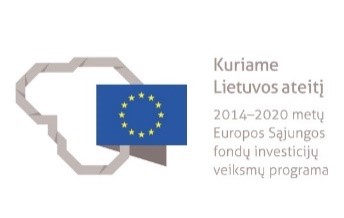
PROJECT „PAGAUK VERSLUMO VĖJĄ (Catch The Wind Of Entrepreneurship!) | ESF
PROJECT „PAGAUK VERSLUMO VĖJĄ“ ("Catch The Wind Of Entrepreneurship!") | ESF
Vilnius University Business School initiated Project "Catch the wind of entrepreneurship!" (“Pagauk verslumo vėją“), which started in 2018. The project budget is more than 300,000 euros.
Project summary
During the project, interdisciplinary groups of teachers created an educational environment that develops the interdisciplinary cooperation of participants by applying active learning methods. At least 50% of the teaching time participants - teachers worked in small interdisciplinary teams solving practical tasks. Training topics were: "Which teacher do adults believe?", "Entrepreneurship education", "Methods of creativity development, innovation and problem solving", "Teamwork methods", "Talent and leadership development", "Active teaching methods", "Innovation application in the educational process", "Possibilities of attracting investments", "Project management".
Project goals
Develop students' and teachers' entrepreneurship and creativity competencies in teams connecting representatives of technologies, biomedicine and physical sciences with representatives of humanitarian, social and arts fields; raise the qualifications of lecturers in various fields, develop teamwork skills, implement the social entrepreneurship competence development plan.
Project results
Improving the competence of lecturers by getting to know the advanced concept of entrepreneurship and creative education and new teaching methods. The possibility to get involved in other project activities by joining the team of mentors-facilitators, solving different business enterprises cases.
Project duration - 24 months.
The project is financed by the funds of European Social Fund and the budget of the Republic of Lithuania

STUDY OF FACTORS OF CULTURE AND CREATIVE INDUSTRIES IN PROMOTING SOCIAL INNOVATION AND ENTREPRENEURSHIP IN REGIONS | LKT
STUDY OF FACTORS OF CULTURE AND CREATIVE INDUSTRIES IN PROMOTING SOCIAL INNOVATION AND ENTREPRENEURSHIP IN REGIONS | LKT
Project relevance
When forming the policies of the current economic system, more and more attention is paid to the analysis of talent, creativity and innovation. The national development strategy of Lithuania "Lithuania 2030" recognizes the formation of a creative and open personality as the main strategic way of promoting changes in society. Expressions of creativity promoted in culture and creative industries become a factor promoting both: social and economic development and contribute to the generation of social innovations. The regional development strategies of Lithuania emphasize the role of the cultural sector and the necessity of investments in the regions, but no clear regional development guidelines are being presented jet.
Project goal
To determine the factors of development of creative industries and prepare guidelines for cultural policy in the regions of Lithuania.
Project results:
- Carried out theoretical and statistical analysis of the aspects/models of the development of creative industries in the regions.
- Studied attitudes, opinions, etc. of representatives of local self-government, cultural organizations and NGOs and communities in the Dzūkija region. Evaluated existing potential in the area and the necessary changes necessary for the effective application of CCI for the development of social innovations.
- Prepared recommendations for guidelines for the development of creative industries in the regions based on the results of theoretical and empirical research.
Project duration - 22 months.
The project was financed by: the Lithuanian Council of Culture under the cultural program "Cultural Research"
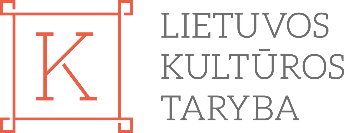
PUBLIC ENGAGEMENT INNOVATIONS FOR HORIZON (PE2020)
Project PUBLIC ENGAGEMENT INNOVATIONS FOR HORIZON (PE2020) summary
Public Engagement Innovations for Horizon 2020 (PE2020) identified, analysed and refined innovative public engagement (PE) tools and instruments for dynamic governance in the field of Science in Society (SiS), while ensuring dynamic state management.
PE2020 will expand the opportunities of European and national science policy representatives to involve the public in decision-making by providing new open access public engagement instruments that will be included in the requirements and implementation process of the European program Horizon 2020.
Project goals
- create new policy evaluation instruments for science policy participants, which will allow identification, evaluation and successful transfer of innovative public involvement experiences between European countries.
- prepare a catalog of existing public engagement innovations.
- review several public engagement practices related to the challenges of the Horizon 2020 program.
- create public access to the public involvement assessment tool.
Project partners:
- National Consumer Research Centre, Part of University of Helsinki (Lead partner), Finland
- University of Helsinki, Finland
- University of Lapland, Finland
- Aarhus University, Denmark
- Labaratotorio di Scienze Della Cittadinanza, Italy
- Vilnius University Business School (VU BS), Lithuania
Project results
- External evaluation of PE2020
- Boosting public and societal engagement
- Conceptualisation of Innovative Public Engagement
- Introducing New PE Toolkit
VU BS research group:
Head of the research group - Dr. Saulė Mačiukaitė-Žvinienė
Senior researcher - Dr. Vytautas Dikčius
Researcher - Dr. Loreta Tauginienė
Project period: 02.2014 – 01.2017
More info: www.pe2020.eu
This project is funded by the European Commission under the 7th Framework Programme
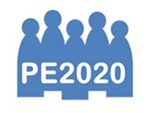
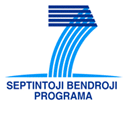
Regions4Future: Enabling policy mix tool and training to expand 5G&AI for regional single market development
Project Regions4Future: Enabling policy mix tool and training to expand 5G&AI for regional single market development summary
To increase the involvement and understanding of the Baltic Sea regional institutions and municipalities about the possibilities of AI and 5G, and to offer advice and actions for strengthening regional innovation systems.
Project goals:
- Create "Policy-mix tool";
- Create a goal-oriented networking organization;
- Create a platform for sharing experiences.
Project partners:
- University of Oulu, Kerttu Saalasti Institute, Finland
- Nicolaus Copernicus Univeristy, Poland
- NCE Media, Norway
Project period: 10.2020 – 09.2021
The project is part-financed by the European Union (European Regional Development Fund) under the Interreg Baltic Sea Region Programme

DEVELOPMENT OF CULTURAL ENTREPRENEURIAL SKILLS IN THE REGIONS OF LITHUANIA, PROMOTING ENTREPRENEURSHIP OF LOCAL COMMUNITIES | LKT
Project DEVELOPMENT OF CULTURAL ENTREPRENEURIAL SKILLS IN THE REGIONS OF LITHUANIA, PROMOTING ENTREPRENEURSHIP OF LOCAL COMMUNITIES summary
Creative industries are considered the core of the service economy and are important not only for the creation of services, but also for ensuring the economic and social well-being of a country or individual region.
By encouraging the creativity and entrepreneurship of local communities, by providing knowledge and skills in the regions of Lithuania, it would be possible to achieve a faster development of creative industries in the regions, which could be the core of the economic well-being of the entire region.
During the project, Vilnius University Business School organized innovation management and creativity training for creative and cultural workers. During the training, the participants were introduced to the nature and impact of innovation in the creative industries on the economic and social vitality of the regions. The participants learned about the innovation creation and implementation process, learned to apply creativity promotion methods, and acquired the skills to work in a diversified innovation creation team.
Project goal:
Accelerate the development of creative industries in the regions of Lithuania by developing the creativity and entrepreneurship of local communities.
Project duration - 9 months.
The project financed by: the Lithuanian Council of Culture under the cultural program "Qualification training"

THE STRATEGY FOR THE DEVELOPMENT OPPORTUNITIES OF THE UTENA REGIONS CCI AND ITS IMPLEMENTATION CRITERIA | LKT
Project relevance
Due to the situation of emigration and the birth rate, the number of people in the regions of Lithuania is decreasing faster than in the cities, the communities are aging, as a result of which the accessibility of cultural activities and culture is decreasing.
The state of regional culture is related to general demographic and social problems of Lithuania's regions - population aging, intense regional emigration lead to negative demographic changes, and social fragmentation is growing. By combining these initiatives "from below" (enabling and promoting communities, promoting cooperation between communities, businesses and NGOs) and regional policy investments in infrastructure "from above" (state investment programs and EU structural funds), it is possible to resist fragmentation and strengthen cultural ties between communities.
Project goals:
- To carry out a pilot assessment of the change in culture and creative industries of Utena city and Utena district municipalities.
- Analyze regional strategy documents, the results of their application (statistical indicators), and provide guidelines for development opportunities.
- Based on the example of Utena, a set of indicators will be formed, on the basis of which it will be possible to perform a comparative analysis of all regions of the country.
Project duration - 22 months.
The project was financed by: the Lithuanian Council of Culture under the cultural program "Cultural Research"

VILNIUS UNIVERSITY INTERNATIONAL BUSINESS SCHOOL (VU IBS) QUALITY MANAGEMENT MODEL UPDATE AND INTERNATIONAL ACCREDITATION
Project VU IBS QUALITY MANAGEMENT MODEL UPDATE AND INTERNATIONAL ACCREDITATION summary
The Law of the Republic of Lithuania on Science and Studies stipulates that every higher education institution must have an internal study quality assurance system, which is based on the study quality assurance provisions of the European Higher Education Area. Vilnius University International Business School (VU IBS) is updating the mentioned system, introducing new standards and obtaining international institutional accreditation of business higher education schools.
VU IBS improves the internal study quality management system, which ensures the quality of studies, taking into account the "European Higher Education Quality Assurance Provisions and Guidelines". Strategic documents are updated, study results monitoring, credit accumulation systems are prepared and updated, learning resources are reviewed, study program guides are prepared. Student counseling and mentoring methodologies are also being developed, which encourage students to create, develop and implement business project ideas, opening up more employment opportunities. These activities aim to activate the entrepreneurship of the VU IBS community.
Project goals:
- To implement knowledge transfer processes and a "full costing" system.
- To adopt the experience of foreign higher education institutions to develop the skills of VU IBS employees who ensure the quality of all areas of the School's activities.
- To update the internal study quality system, which will ensure that VU IBS educates active, creative, proactive, tolerant, broad-minded, dutiful and responsible members of their country and modern society.
Project duration - 24 months
The project was implemented in accordance with the 2007-2013 Description of financing conditions of projects of priority 2 "Lifelong learning" VP1-2.1-ŠMM-04-K measure "Increasing the efficiency of the study system" of the human resources development action program No. 2

